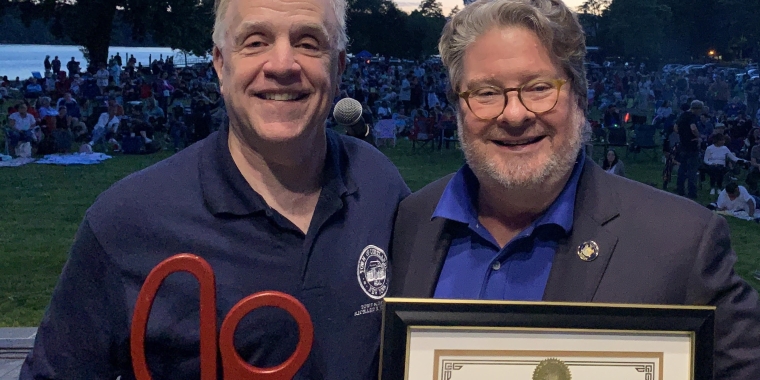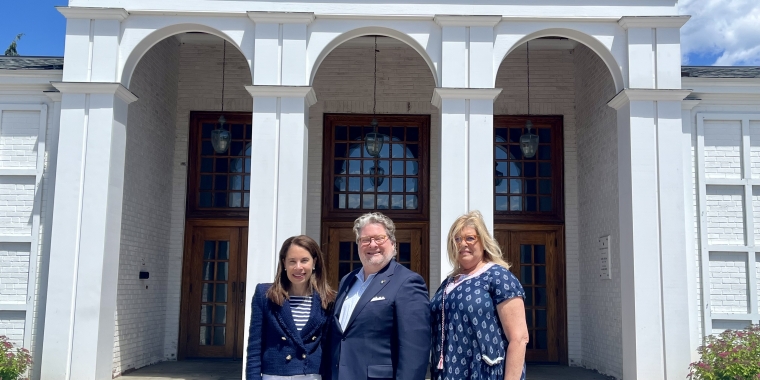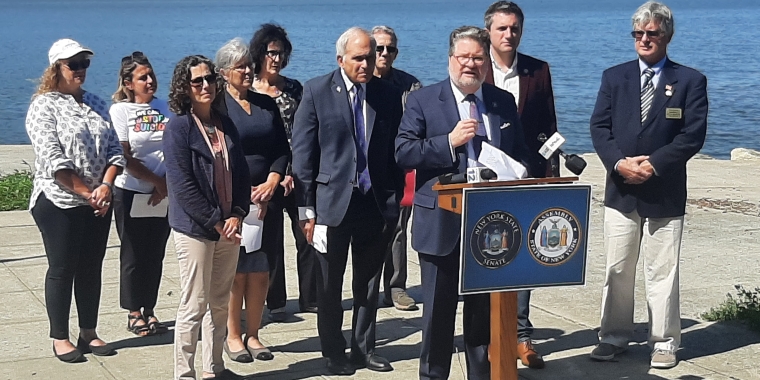
Harckham Introduces Bill to Make Public Environmental Radiation Data and Analysis
March 2, 2021

Albany, NY – New York State Senator Pete Harckham has introduced a new bill (S.5099) that will direct the state Commissioner of Health to publicly publish the annual report of the environmental radiation surveillance program and present an analysis of its data. The legislation also directs the Department of Health (DOH) to notify other relevant state agencies if detected radioactive contamination exceeds federal Environmental Protection Agency standards allowed in drinking water or food.
“Being able to safeguard the environment and protect our residents from unseen dangers like radioactivity begins with knowing what the measurable threats and risks are, which is why making the data public and analyzing it are so important,” said Harckham. “We cannot let another year go by without having this vital information available for us all.”
Following the Three Mile Island nuclear accident, New York State began collecting radiation surveillance data—the only state in the nation to do so. The data, which is still being collected from several locations around the state, was then included in an annual report. (The state does not collect radioactivity data from specific energy generating facilities—that is required of the facilities’ operators for licensing.) But since 1995, New York State has ceased to publish the data.
Many scientists, including epidemiologist Joseph Mangano, who is executive director of the Radiation and Public Health project, feel that the public should know how much radioactivity is present in the environment. Mangano is well-known for his studies of Strontium-90 in baby teeth to measure radiation levels in bodies of Americans living near nuclear plants.
“Informing the public of radiation levels in the environment would fill a critical need,” said Mangano. “This new legislation would ensure that the air New Yorkers breathe and the food and water they consume are safe. The public is entitled to know the amount of radiation in their environment, and that officials are making their best efforts to reduce these toxins, and improve public health.”
New York’s environmental radiation surveillance program measures the level of radionuclides in the different aspects of the environment, including soil, air and vegetation, as well in water sources and supplies around the state. The measurements determine the normal levels of background radioactivity. Direct gamma radiation is monitored through Environmental Thermoluminescent Dosimeters (TLDs), which are deployed for approximately one calendar year before the data is collected.
Harckham’s legislation would direct the DOH commissioner to publish an annual report of this radioactive data on the DOH website, and also analyze the reported data showing trends and cumulative impact. Making sure the report and analysis are available to other state agencies, for instance, would provide caution to hunters and anglers about consuming animals taken in areas with markedly high radioactive contamination.



